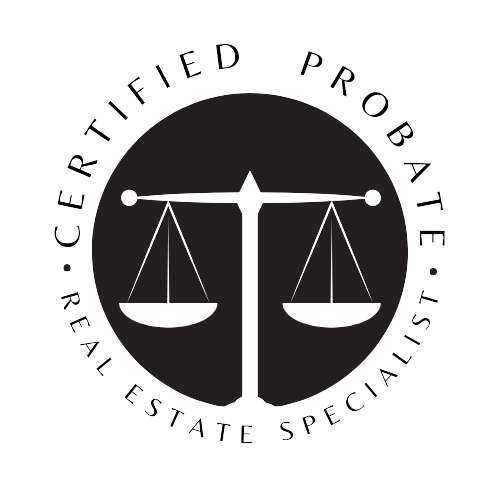
TRUSTS AND TAX EXEMPTIONS | ADVANTAGES OF SETTING UP TRUSTS
Imagine a world where your hard-earned money and assets are sheltered from the grasps of excessive taxes, giving you peace of mind and financial stability.
Setting up trusts can be the key to unlocking this symbol of financial freedom. But what exactly are the advantages of establishing trusts? How can they help you navigate the complexities of tax exemptions and protect your assets for future generations?
In this discussion, we will explore the myriad benefits that trusts offer, leaving you with a compelling reason to uncover the secrets behind these powerful financial tools.
Key Takeaways
– Trusts provide significant tax advantages, including lifetime exemptions.
– Trusts offer strategies to minimize tax liabilities and maximize wealth.
– Trusts protect assets from potential creditors and lawsuits.
– Charitable trusts allow for tax benefits through charitable giving.

Setting up trusts can provide you with significant tax advantages, including lifetime exemptions that greatly benefit your financial well-being. Trusts play a crucial role in tax planning, offering various strategies to minimize tax liabilities and maximize your wealth.
One major advantage of trusts is the ability to protect your assets. By transferring your assets into a trust, you can shield them from potential creditors and lawsuits, ensuring that your hard-earned wealth is preserved for future generations.
Another advantage of setting up trusts is the opportunity for charitable giving. Through a charitable trust, you can support causes that are important to you while also enjoying tax benefits. By donating to a charitable trust, you can reduce your taxable income and potentially qualify for a tax deduction.
Trusts also play a vital role in estate planning, allowing you to efficiently transfer your wealth to your loved ones. With proper trust structures, you can minimize estate taxes and ensure a smooth transition of assets to the next generation. Moreover, trusts provide a means for generation skipping, enabling you to pass on wealth to your grandchildren while minimizing tax implications.
In addition to tax efficiency and wealth preservation, trusts allow you to establish a family legacy. By setting up a trust, you can ensure that your assets are managed and distributed according to your wishes, even after you’re gone. Trusts also come with a fiduciary responsibility, meaning that the trustee must act in the best interests of the beneficiaries, ensuring that your financial affairs are handled responsibly.
Lastly, trusts offer the advantage of tax deferral. By utilizing certain trust structures, you can delay the payment of taxes on income generated by the trust, allowing your assets to grow more effectively over time.
AVOID PROBATE AND CONSERVATORSHIP
To further enhance the advantages of trusts, you can also avoid the complexities of probate and conservatorship. Trust administration allows for a smooth and efficient transfer of assets upon your passing, without the need for court intervention. As the trustee, you have the responsibility to manage and distribute the trust assets according to the terms outlined in the trust document. This includes ensuring that the beneficiaries receive their rightful share and handling any necessary trust amendments.
In return for your services as trustee, you may be entitled to trustee compensation, which can be specified in the trust document or determined by state law. By avoiding probate, your trust can provide privacy and protect your beneficiaries from the lengthy and costly probate process.
Additionally, trusts can help you avoid conservatorship, which is a legal process where someone is appointed to manage your affairs if you become incapacitated. Through careful planning and the establishment of a trust, you can ensure that your assets are protected and managed according to your wishes, even during periods of incapacity. This can provide peace of mind for both you and your loved ones.
However, it’s important to note that trusts can still be subject to litigation, so it’s crucial to consult with an experienced attorney to ensure your trust is properly structured and in compliance with the law.
LAW OF PORTABILITY

If you’re considering setting up a trust, it’s important to understand the law of portability.
One of the key points to consider is the step-up in basis. This means that when you pass away and your assets are transferred to your beneficiaries, the value of those assets is adjusted to their current market value, potentially reducing their tax liability.
STEP UP IN BASIS
Maximize the tax benefits of your estate by taking advantage of the step up in basis, also known as the law of portability. This strategy can have significant implications for your estate planning and tax minimization.
When you pass away, your assets may have appreciated in value, resulting in potential capital gains taxes for your heirs. However, with the step up in basis, the value of your assets is adjusted to their fair market value at the time of your death. This means that your heirs can potentially avoid paying capital gains taxes on the appreciation that occurred during your lifetime.
By utilizing this tax-efficient strategy, you not only provide for your loved ones, but also ensure wealth preservation and asset protection for future generations.
Incorporating basis step up rules into your estate plan can have substantial tax benefits and help you minimize the burden of inheritance taxes.
CERTIFIED PROBATE REALTOR
Albert Asensio believes it is important to hire an estate planning attorney who is a certified specialist who not only sets up trusts but can also assist with the trust administration tasks such as assisting in the preparation of the final trust tax return. Our clients ask a lot of questions that are legal in nature. Even if we may know the answer, we are not licensed attorneys licensed to practice law. Attorneys can answer such questions as:
- What is a trust fund?
- What is a trust account?
- How to get a trust tax ID?
With so many advantages of estate planning, setting up trusts and tax exemptions, it amazes us that more people don’t set up trusts and avoid probate.
If you inherit real estate and need to sell real property in probate or held in a trust hire a trained and certified probate and trust real estate professional.
Contact:
Need Probate Help In Florida | Albert Asensio | Broker Associate with Lokation Realty | License number 3015014
Phone: 786-318-4270
Email: albertbuyandsell@gmail.com
A certified probate realtor is equipped with specialized knowledge and skills to assist in the establishment and management of trusts, particularly when it comes to real estate assets. Their expertise is crucial in ensuring that properties within a trust are well-maintained and income-producing.
When it comes to estate planning, a certified probate realtor can help navigate the complexities of trust administration, ensuring that all legal requirements are met. They are also proficient in managing real estate transactions, including the buying, and selling of properties tied to a trust, and are particularly knowledgeable about the probate sales process, ensuring adherence to legal standards. In the case of probate sales, a certified probate realtor can provide guidance on the process and ensure that the sale is handled in compliance with the law.
For trustees, the complexities of their role are made more manageable with the support of a certified probate realtor, who can clarify responsibilities and aid in the effective execution of their duties. This collaboration extends to working with real estate agents to oversee the trust’s real estate holdings.
Moreover, certified probate realtors offer valuable insights into the inheritance process, aiding beneficiaries in understanding their rights and responsibilities. Executors also benefit from their expertise as they undertake the various tasks involved in trust management.
Frequently Asked Questions
What Are the Different Types of Trusts Available for Tax Exemptions?
Revocable trusts, irrevocable trusts, charitable trusts, special needs trusts, generation skipping trusts, qualified personal residence trusts, grantor retained annuity trusts, qualified terminable interest property trusts, life insurance trusts, and dynasty trusts are different types of trusts available for tax exemptions.
How Can Setting up a Trust Help in Avoiding Probate and Conservatorship?
Setting up a trust can help you avoid probate and conservatorship. Trust administration, estate planning, and trustee responsibilities all play a role in avoiding court intervention, protecting assets, ensuring privacy, and managing wealth effectively.
What Is the Concept of Portability in the Law of Trusts and Tax Exemptions?
Portability in the law of trusts and tax exemptions refers to the ability to transfer unused estate and gift tax exemptions between spouses. It can be a useful tool in trust administration, tax planning, and estate planning strategies.
How Does Being a Certified Probate Realtor Benefit Individuals Involved in Trusts?
Being a certified probate realtor benefits you involved in trusts by providing expertise in trust administration, real estate valuation, property management, and selling. Trust planning is crucial for tax implications and trustee responsibilities.
Are There Any Limitations or Restrictions on the Tax Exemptions Provided by Trusts?
There are limitations and restrictions on the tax exemptions provided by trusts. It is essential to understand the trust tax rules, regulations, and reporting requirements to ensure you take advantage of the trust tax benefits and avoid any trust tax consequences.
Conclusion
So, if you’re looking for a way to minimize taxes, avoid probate, and protect your assets, setting up a trust can be a smart move.
With the advantages of tax exemptions, the ability to avoid probate and conservatorship, and the law of portability on your side, trusts offer a secure and efficient way to manage your wealth.
Don’t forget to consult a certified probate realtor to ensure you navigate the process smoothly.
Dedicated Probate Experts
Our specialized team possesses deep expertise in the probate sector. We navigate the complexities of the Probate Court with ease and work in tandem with probate lawyers to facilitate seamless transactions. Our comprehensive services are designed to meticulously handle every detail, tailoring solutions to the unique requirements of estate, conservatorship, or trust real estate sales.
We cater to a diverse clientele, many of whom reside beyond Broward County and even outside Florida. Our ability to provide exceptional service remotely means that in-person meetings are often unnecessary, ensuring convenience and efficiency for all our clients.
Real Estate Broker | REALTOR®
Albert Asensio is a licensed Florida Real Estate Broker with a certification in probate and trust sales, embodying a core belief that every client deserves 100% honesty and transparency. Since January 2000, Albert has led a successful real estate business, earning a reputation for speaking sincerely and is proficient within his profession. As a Broker Associate at Lokation Realty, he leverages his specialized probate team to streamline the probate process, alleviating stress for executors and beneficiaries alike, ensuring estate management adheres to legal standards, and safeguarding the interests of all parties involved.

